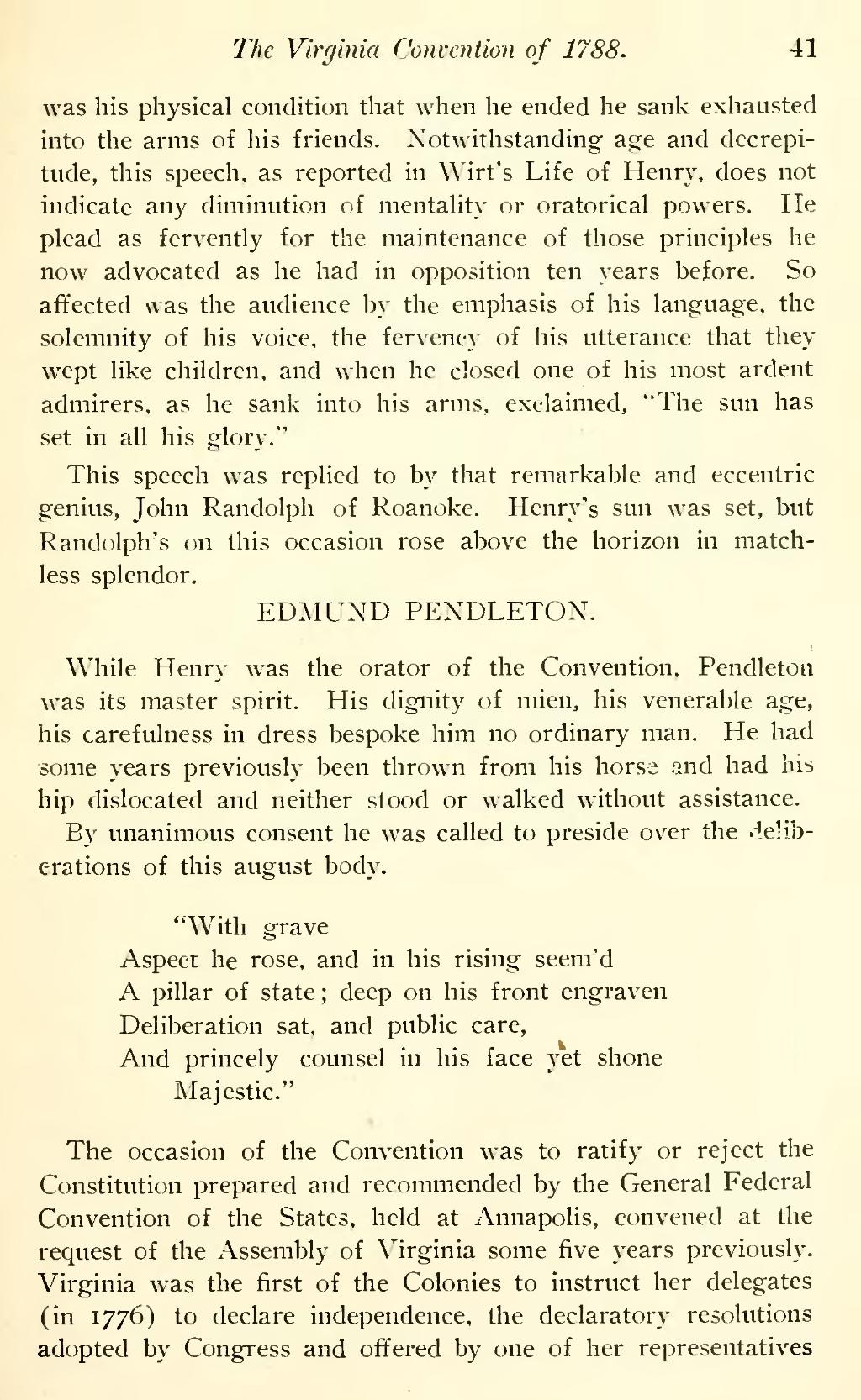was his physical condition that when he ended he sank exhausted into the arms of his friends. Notwithstanding age and decrepitude, this speech, as reported in Wirt's Life of Henry, does not indicate any diminution of mentality or oratorical powers. He plead as fervently for the maintenance of those principles he now advocated as he had in opposition ten years before. So affected was the audience by the emphasis of his language, the solemnity of his voice, the fervency of his utterance that they wept like children, and when he closed one of his most ardent admirers, as he sank into his arms, exclaimed, "The sun has set in all his glory."
This speech was replied to by that remarkable and eccentric genius, John Randolph of Roanoke. Henry's sun was set, but Randolph's on this occasion rose above the horizon in matchless splendor.
EDMUND PENDLETON.
While Henry was the orator of the Convention, Pendleton was its master spirit. His dignity of mien, his venerable age, his carefulness in dress bespoke him no ordinary man. He had some years previously been thrown from his horse and had his hip dislocated and neither stood or walked without assistance.
By unanimous consent he was called to preside over the deliberations of this august body.
"With grave
Aspect he rose, and in his rising seem'd
A pillar of state; deep on his front engraven
Deliberation sat, and public care,
And princely counsel in his face yet shone
Majestic."
The occasion of the Convention was to ratify or reject the Constitution prepared and recommended by the General Federal Convention of the States, held at Annapolis, convened at the request of the Assembly of Virginia some five years previously. Virginia was the first of the Colonies to instruct her delegates (in 1776) to declare independence, the declaratory resolutions adopted by Congress and offered by one of her representatives
